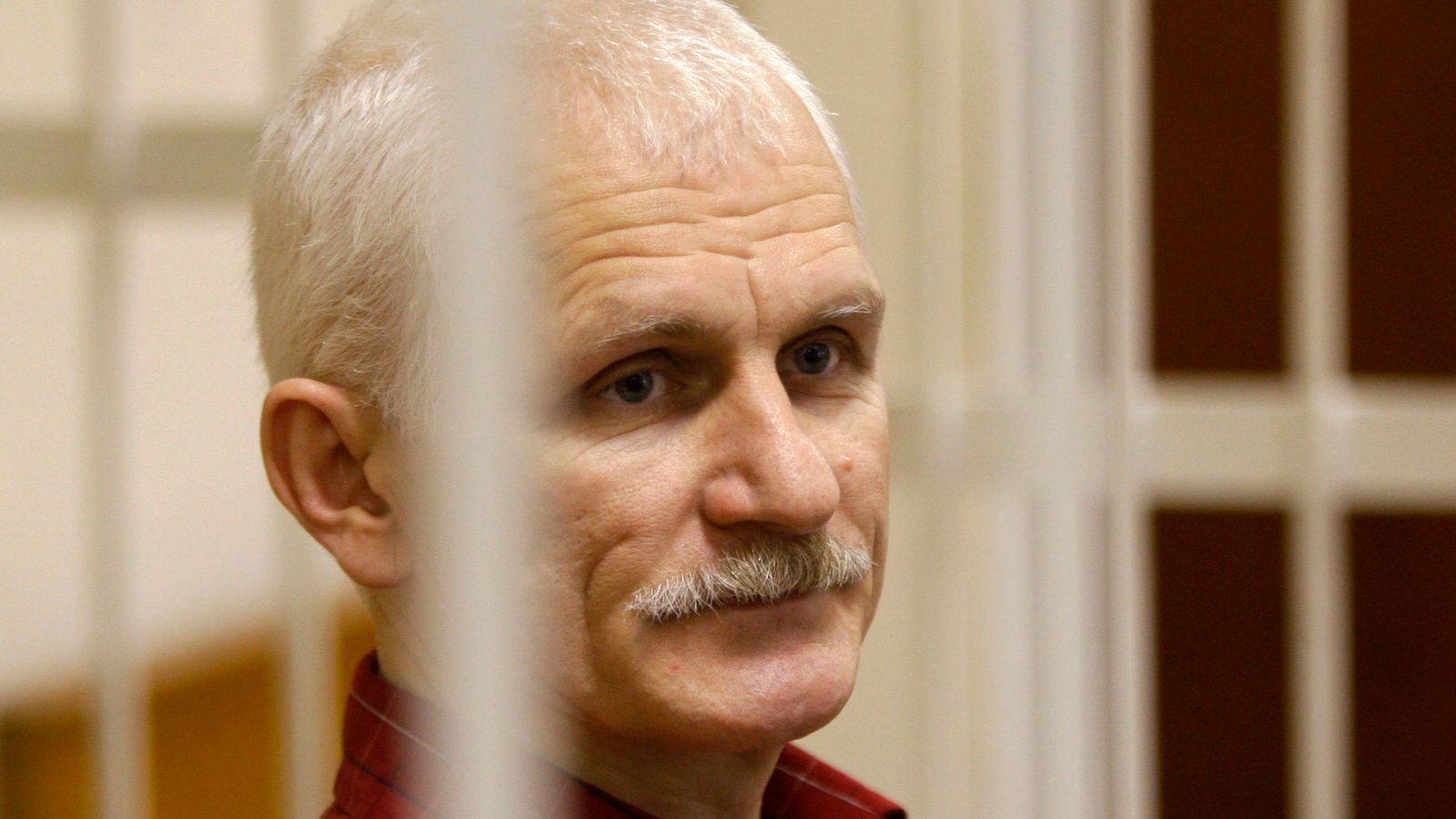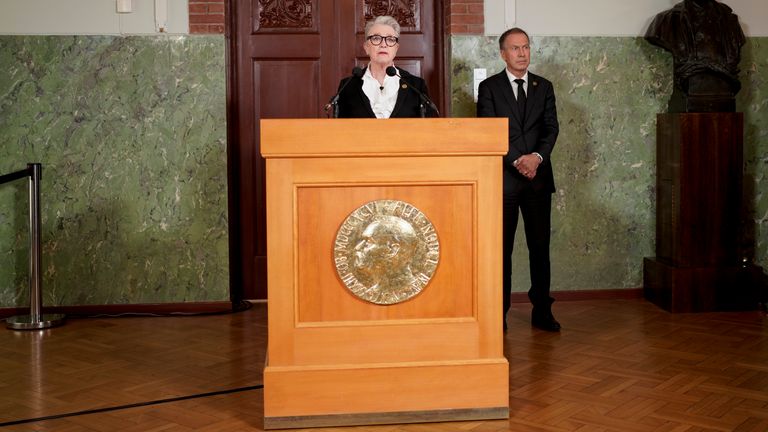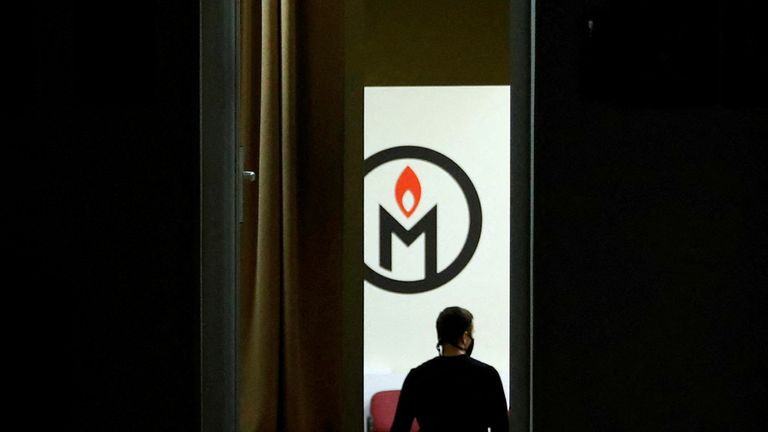The Nobel Peace Prize has been awarded to jailed Belarus human rights activist Ales Bialiatski, the Russian campaign group Memorial and Ukraine’s Center for Civil Liberties.
The winners were announced in Oslo by Berit Reiss-Andersen, chair of the Norwegian Nobel Committee.
She said the judges wanted to honour “three outstanding champions of human rights, democracy and peaceful coexistence in the neighbour countries Belarus, Russia and Ukraine”.
Birthday wishes for Putin from just one world leader – Ukraine War latest
She added: “Through their consistent efforts in favour of human values and anti-militarism and principles of law, this year’s laureates have revitalised and honoured Alfred Nobel’s vision of peace and fraternity between nations, a vision most needed in the world today.”
She also called on Belarus to release Mr Bialiatski from prison.
The prize will be widely seen as a condemnation of Russian leader Vladimir Putin, who is celebrating his 70th birthday, and Moscow ally Belarus President Alexander Lukashenko, making it one of the most politically contentious in decades.
However, Ms Reiss-Andersen insisted the award was not an anti-Putin prize.
“We always give the prize for something and to something and not against someone,” she said.
Belarusian security police raided offices and homes of lawyers and human rights activists in July last year, detaining Mr Bialiatski and others in a new crackdown on opponents of the regime.
Authorities had moved to shut down independent media outlets and human right groups after mass protests the previous August against a presidential election marred by widespread claims it was rigged.
Memorial, Russia’s most prominent human rights group, has also been been closed by the Kremlin.
The peace prize traditionally recognises the work of groups and activists seeking to prevent conflict, tackle hardship and protect human rights.
Read more:
Vladimir Putin at 70: How a KGB agent from Leningrad rose to the top of the Kremlin
Biden warns world is facing biggest threat of nuclear ‘Armageddon’ since Cuban missile crisis
Last year’s winners have faced a difficult time since receiving the prize.
Journalists Dmitry Muratov of Russia and Maria Ressa of the Philippines have been fighting for the survival of their news organisations and defying government efforts to silence them.
They were honoured last year for “their efforts to safeguard freedom of expression, which is a precondition for democracy and lasting peace.”
A week of Nobel Prize announcements kicked off on Monday with Swedish scientist Svante Paabo receiving the award in medicine for unlocking secrets of Neanderthal DNA that provided key insights into the immune system.
Three scientists jointly won the prize in physics Tuesday.
Frenchman Alain Aspect, American John F Clauser and Austrian Anton Zeilinger had shown that tiny particles can retain a connection with each other even when separated, a phenomenon known as quantum entanglement, that can be used for specialised computing and to encrypt information.
The Nobel Prize in chemistry was awarded on Wednesday to Americans Carolyn R Bertozzi and K. Barry Sharpless, and Danish scientist Morten Meldal for developing a way of “snapping molecules together” that can be used to explore cells, map DNA and design drugs that can target diseases such as cancer more precisely.
French author Annie Ernaux won this year’s Nobel Prize in literature on Thursday.
The panel commended her for blending fiction and autobiography in books that draw on her experiences as a working-class woman to explore life in France since the 1940s.
The 2022 Nobel Prize in the economics will be announced on Monday.
The prizes carry a cash award of 10 million Swedish kronor (around £800,000) and will be handed out on 10 December.
The money comes from a bequest left by the prize’s Swedish creator Alfred Nobel, who invented dynamite.


